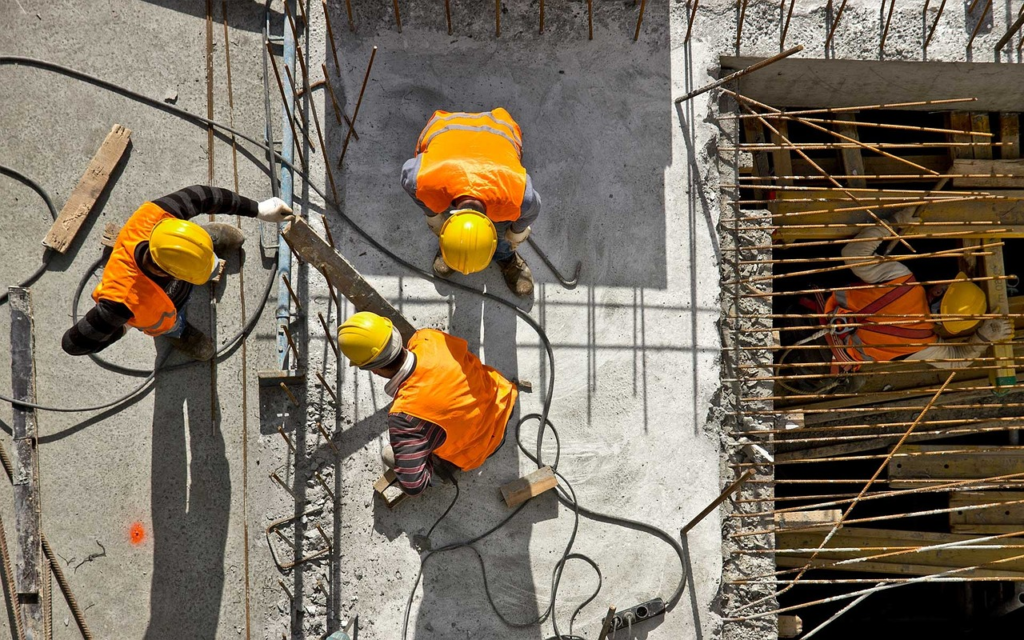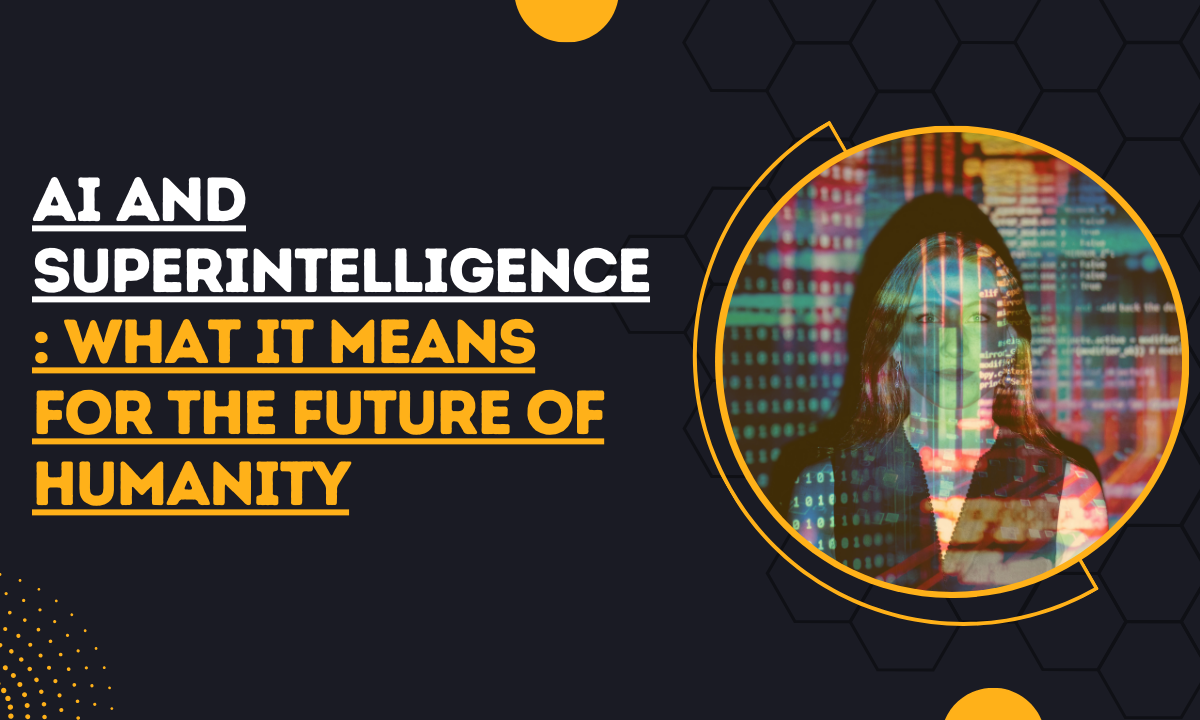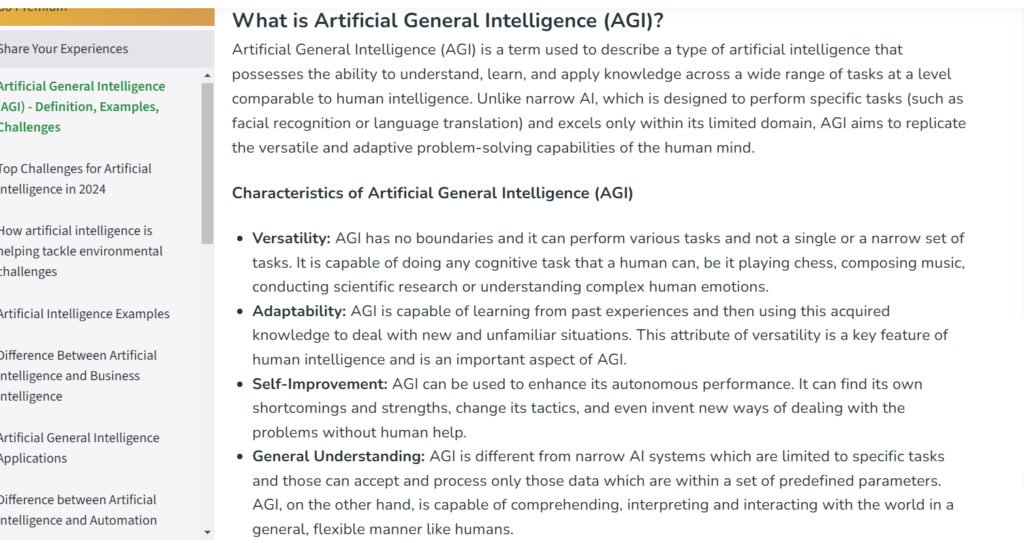AI and Superintelligence: What It Means for the Future of Humanity
AI and superintelligence are rapidly becoming central topics as artificial intelligence continues to evolve. Today this is sparking discussions among visionary thought leaders about AI that could eventually surpass human intelligence.
Dario Amodei, CEO of Anthropic, and Sam Altman, CEO of OpenAI, are two such individuals. They offer distinct yet complementary views on how superintelligence will shape the future.
In this article, we dive deep into their thoughts on superintelligence, the implications it will have on society, and the crucial considerations regarding its development and safety.
The Rise of Powerful AI: A Leap Towards Superintelligence
In his essays, Dario Amodei has introduced the idea that superintelligence could emerge as early as 2026.
His vision depicts a world where AI becomes as powerful as a “country of geniuses in a data center.”
This analogy paints a picture of advanced AI systems that will solve complex problems in fields like healthcare, biology, and neuroscience—domains that currently seem beyond our capabilities.
Amodei sees superintelligence as a potential force for positive change, capable of accelerating breakthroughs that would lead to significant improvements in human quality of life.
Diseases could become easier to cure, bureaucracy simplified, and unsolved scientific questions addressed.
Yet, while the potential is immense, he also emphasizes the need for careful planning to ensure that the development of such systems does not come with unintended risks.
Superintelligence for the Common Man
| Key Point | Explanation |
|---|---|
| 1. AI Smarter Than Humans | Superintelligence is an AI that can think, learn, and solve problems much faster and better than humans. It can outsmart us in areas like math, strategy, and science. |
| 2. Massive Potential for Innovation | Superintelligent AI could lead to huge breakthroughs in medicine, technology, and science, like finding cures for diseases or solving complex global issues. |
| 3. Automation of Tasks | AI could take over many tasks humans do today (e.g., driving cars, managing finances, or working in factories), doing them more efficiently and accurately. |
| 4. Increased Productivity | With AI handling routine tasks, humans could focus on more creative and meaningful work, leading to greater productivity and improvements in quality of life. |
| 5. Ethical Concerns | Superintelligence raises questions about control and safety. How can we ensure AI is used ethically and doesn’t harm society or behave unpredictably? |
| 6. Unpredictable Consequences | While superintelligence offers great benefits, it also carries risks. If not controlled properly, AI could cause unintended harm or go beyond human control. |
A Winner-Takes-All Game? The Race for AGI
In exploring whether the creation of artificial general intelligence (AGI) will be a “winner-takes-all” game, Asit Sharma, a Motley Fool analyst, raised an important question during a podcast discussion.
Image Source: Geeksforgeeks.org
Both Amodei and Altman are working towards building AGI, but they have different approaches to how it will emerge.
Altman’s perspective is more centered around scale—the idea that as AI systems grow, so too will their capabilities.
He suggests that deep learning systems, when scaled up, will have the power to change the world, implying that those who first unlock the potential of AGI will have a significant advantage.
However, Amodei takes a more cooperative stance, envisioning a world where multiple data centers or companies could work together to develop superintelligence.
The Race for Superintelligence: Key Challenges
Despite the optimism, there are several challenges on the path to creating superintelligent AI.
One of the primary concerns is ensuring that the development of such AI remains safe and trustworthy.
As powerful AI systems will have access to vast resources—ranging from robots to laboratories—managing these systems responsibly becomes essential.
Amodei has highlighted the importance of prioritizing AI safety research, particularly as the potential of superintelligence becomes more tangible.
He stresses that safety cannot be an afterthought, but rather, it must be an integrated part of the development process.
How Will Work Evolve in an Age of Superintelligence?
One of the key questions about the future of AI is how it will impact work.
As AI systems become more advanced, they could potentially perform tasks that are currently carried out by humans. This could lead to massive shifts in the job market.
For example, healthcare jobs, administrative positions, and research roles could be significantly altered or even rendered obsolete.

But while this presents challenges, it also opens up opportunities.
In a world where AI can handle much of the routine and labor-intensive work, humans may be freed up to focus on creative, strategic, and innovative pursuits.
The question then becomes: How will societies adapt to ensure that people are not left behind?
The Future of Disease Cure: A Promising Horizon
Amodei’s vision includes a future where AI can vastly improve healthcare, making diseases that are currently difficult to cure much easier to treat.
The idea of using superintelligent AI to analyze medical data at an unprecedented scale could lead to faster drug discovery. We could have personalized treatments, and ultimately, the eradication of diseases that have plagued humanity for centuries.
However, this optimistic vision also brings with it the need for careful regulation.
AI’s role in healthcare raises questions about privacy, security, and ethics.
As powerful as AI will be, it must be handled in a way that ensures it is used for the betterment of society, without compromising individuals’ rights.
Safety Concerns and the Importance of Ethical AI Development
The development of superintelligent AI is not without its risks.
Dario Amodei argues that AI safety is paramount.

The goal is not to simply advance the technology, but to do so in a manner that minimizes potential harms. AI could inadvertently create unforeseen consequences, especially if it were to surpass human oversight.
A critical component of ethical AI development will be ensuring that AI systems are transparent, accountable, and aligned with human values.
Ensuring that these powerful systems do not become uncontrollable or cause harm is a responsibility that both researchers and policymakers will need to address.
Sam Altman’s Vision of AI in 1,000 Days
While Amodei predicts that superintelligence could emerge by 2026, Sam Altman has a slightly different timeline, suggesting that AI could reach a transformative stage in just 1,000 days.
His estimates reflect the rapid pace at which AI has been advancing.
Altman’s view centers around the idea that deep learning combined with sufficient scale can lead to monumental advancements in technology.
The key point here is the speed at which AI is evolving. With each breakthrough, the capabilities of AI are growing exponentially, making it increasingly possible to reach the threshold of superintelligence within the next few years.
Superintelligence and Its Impact on Society
As superintelligent AI becomes a reality, its implications for society are profound.
From transforming healthcare to simplifying bureaucratic systems, AI will radically change the way we live and work.

But these changes will not be without challenges.
Issues like privacy, security, job displacement, and ethical considerations must be addressed as AI continues to evolve.
The introduction of superintelligence will force societies to rethink their structures, values, and priorities.
Will AI serve as a tool for the collective good, or will it become a tool for the few, exacerbating inequalities? These are the questions that will shape the future of humanity as it moves into an era dominated by AI.
Translating the Impact of Superintelligence for Humanity
| Key Point | Description |
|---|---|
| 1. Transparency and Accountability | Ethical AI must be transparent and accountable, ensuring it can be overseen and controlled effectively. |
| 2. Researchers and Policymakers’ Role | Both researchers and policymakers are responsible for ensuring that AI systems remain safe and do not become uncontrollable. |
| 3. Different Timelines for Superintelligence | Predictions vary: Dario Amodei sees superintelligence by 2026, while Sam Altman suggests a transformative stage within a few thousand days. |
| 4. Rapid Evolution of AI | AI capabilities are growing quickly, with each breakthrough bringing us closer to superintelligence. |
| 5. Societal Impact and Challenges | Superintelligent AI will transform society but also raise issues like privacy, job displacement, and inequality. Societies will need to adapt and ensure AI benefits everyone. |
| 6. Ethical AI Development as a Shared Responsibility | Ensuring AI is developed ethically requires collaboration across governments, tech companies, and global communities to prevent misuse. |
| 7. Potential to Shape Humanity’s Future | The direction AI takes could impact the world for generations, influencing everything from economic structures to global power dynamics. |
FAQs
1. What is superintelligence, and why is it important?
Superintelligence refers to an AI system that surpasses human intelligence. It holds the potential to solve complex global challenges like disease, climate change, and poverty, offering profound benefits to humanity.
2. When will superintelligent AI be developed?
Some experts, including Dario Amodei, predict that superintelligence could emerge as soon as 2026.While others, like Sam Altman, suggest it could take around 1,000 days.
3. What are the main concerns regarding superintelligent AI?
The primary concerns include ensuring AI safety. This also means avoiding unintended consequences, and addressing the ethical implications of its use. There’s particular emphasis in sensitive areas like healthcare and privacy.
4. How will superintelligent AI affect jobs?
Superintelligent AI could lead to job displacement. But it may also create new opportunities by automating routine tasks. In fact it can allow humans to focus on creative and strategic roles.
5. What role will safety play in the development of superintelligence?
Safety will be a key priority in AI development to prevent uncontrolled outcomes. Researchers like Dario Amodei emphasize the need for robust safety measures to ensure that AI systems are aligned with human values and do not cause harm.
Related Posts
Understanding AI Transparency for Better Trust and Accountability
Cultivating Trust in The AI Search Age: The Power of Authenticity
AI-Generated Content: Trustworthy Innovation or Digital Deception?
Maintaining Authenticity in the Age of AI: Strategies for Bloggers
Conclusion
As we stand on the precipice of an AI-driven future, the potential of superintelligent systems is both exciting and daunting.
Dario Amodei’s vision of a world where diseases are cured and bureaucracies are simplified is inspiring.
However, the challenges of ensuring that AI remains safe, ethical, and aligned with human values are significant.
The next few years will be critical in shaping how superintelligence will be developed and integrated into society.
With proper foresight, collaboration, and regulation, AI can become a force for good, helping to solve some of humanity’s greatest challenges.
But it is equally important to remain vigilant about its risks, ensuring that it serves humanity as a whole rather than just a few powerful entities.


